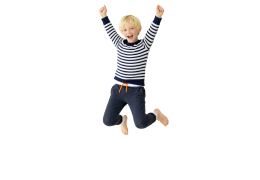Certains vêtements sont pensés pour faciliter la vie, sans compromis sur le confort. La grenouillère adulte 4Care en coton avec fermeture éclair à l’avant s’inscrit dans cette idée : une pièce simple, pratique, agréable à porter, qui aide au quotidien.
blog sur le pipi au lit et l'incontinence Adultes et Enfants
| Blog pour tous les problèmes de pipi au lit, énurésie et incontinence pour enfant et adulte. Une sélection des articles pour incontinence et énurésie primaire et secondaire. |
-
 Grenouillère adulte 4Care en coton : pourquoi on l’adopteVoir l'article
Grenouillère adulte 4Care en coton : pourquoi on l’adopteVoir l'articleCertains vêtements sont pensés pour faciliter la vie, sans compromis sur le confort. La grenouillère adulte 4Care en coton avec fermeture éclair à l’avant s’inscrit dans cette idée : une pièce simple, pratique, agréable à porter, qui aide au quotidien.
-
 UnderWunder : des sous-vêtements absorbants invisibles pour le quotidienVoir l'article
UnderWunder : des sous-vêtements absorbants invisibles pour le quotidienVoir l'articlePour celles et ceux qui vivent avec de petits accidents urinaires ou fécaux au quotidien, la marque UnderWunder propose une gamme de culottes et slips absorbants qui allient confort, discrétion et style. Ces modèles, vendus sur Bed-Wet.com, sont spécialement conçus pour être portés comme des sous-vêtements classiques, tout en offrant une protection efficace contre les fuites légères.
-
 Confidence and serenity at night with Drypee pajamas specially designed for children and adults who need bedwetting relief.Voir l'article
Confidence and serenity at night with Drypee pajamas specially designed for children and adults who need bedwetting relief.Voir l'articleBedwetting, or nocturnal enuresis , affects many children—and sometimes adults too—and remains a source of embarrassment, fatigue, and endless laundry for families. Amidst these often stressful nights, a practical and elegant solution has emerged: DryPee absorbent pajamas, specially designed to address this issue without compromising on comfort or discretion.
-
 Treating a child for bedwetting with separated parents.Voir l'article
Treating a child for bedwetting with separated parents.Voir l'articleAn alarm is one of the most effective treatments for nocturnal enuresis.It works by waking the child as soon as the first drops of urine are present , which allows the brain to gradually learn to recognize the signal of a full bladder during sleep.
-
 R15 Uriflex Watch: The Discreet and Stylish Companion for Days Without ForgettingVoir l'article
R15 Uriflex Watch: The Discreet and Stylish Companion for Days Without ForgettingVoir l'articleImagine… your child so engrossed in a game, book or cartoon that they forget to go to the toilet.
-
 Dive in with complete peace of mind: the SoSecure waterproof swimming briefsVoir l'article
Dive in with complete peace of mind: the SoSecure waterproof swimming briefsVoir l'articleNavigating the constraints of urinary or fecal incontinence should not be a barrier to swimming.
-
 Washable bed pad: durable, comfortable and economical protectionVoir l'article
Washable bed pad: durable, comfortable and economical protectionVoir l'articleWashable mattress protectors have become a practical and responsible solution for effectively protecting bedding. Whether in a family, medical, or simply preventative context, they meet a variety of needs while also being part of a sustainable approach.
-
 The Glass SoulVoir l'article
The Glass SoulVoir l'articleA text by Xavier, "creator of Kid Medical," dedicated to families and autistic people like himself. A source of hope for greater understanding.
-
 Bedwetting isn't a problem - how to deal with it?Voir l'article
Bedwetting isn't a problem - how to deal with it?Voir l'articleBedwetting: A State of Mind, Not a Problem! Transform your nights into peaceful ones. Bedwetting, as we know, can be a source of worry for many parents. However, it's essential to understand that this phenomenon is much more common than we think and is often a natural part of a child's development. Here, we believe there's no need to stress.
-
 Complete diapers or absorbent underwear? Which to choose?Voir l'article
Complete diapers or absorbent underwear? Which to choose?Voir l'articleWhat are the differences between these two types of protection and in what situations should they be used?Find a complete guide to understanding the use of each type of adult or child protection.
-
 Buying advice: Why choose an adult onesie?Voir l'article
Buying advice: Why choose an adult onesie?Voir l'articleIn the field of care, the need to protect patients against self-undressing becomes crucial, particularly for people with cognitive disorders such as dementia, as well as for those with disabilities.
-
 Demystifying the use of the Stop Peeing device in FranceVoir l'article
Demystifying the use of the Stop Peeing device in FranceVoir l'articleEach year, more than 500,000 children in France are affected by bedwetting. Bedwetting alarms are very common in Europe. Store, we explain all the benefits of using a Stop Peeing device.
-
 Routines and rituals in autistic peopleVoir l'article
Routines and rituals in autistic peopleVoir l'articlePeople with autism place great importance on routines and rituals. Knowing what will happen and how it will happen is reassuring for them, allowing them to experience less uncertainty. However, in certain situations, routines and rituals become so central that they can be detrimental to both the autistic person and those around them.
-
 Disability diagnosis: who to consult? And where?Voir l'article
Disability diagnosis: who to consult? And where?Voir l'articleIt often takes several years to get a disability diagnosis. Here's a look at the different places and professionals involved in diagnosing a disability.
-
 What is RQTH and how do you obtain it?Voir l'article
What is RQTH and how do you obtain it?Voir l'articleThe Recognition of the Quality of Disabled Worker (RQTH), as it indicates, allows one to be recognized as a disabled worker.
-
 Autism and noise: hypersensitivityVoir l'article
Autism and noise: hypersensitivityVoir l'articleBeing hypersensitive to noise, in a world like ours, is a real daily ordeal, and this is the case for many autistic people. Everything is so noisy: shops, city centers, playgrounds, etc. So, if we've all experienced situations where noise was overwhelming, imagine someone with hypersensitivity finding themselves in all that din.

Latest comments